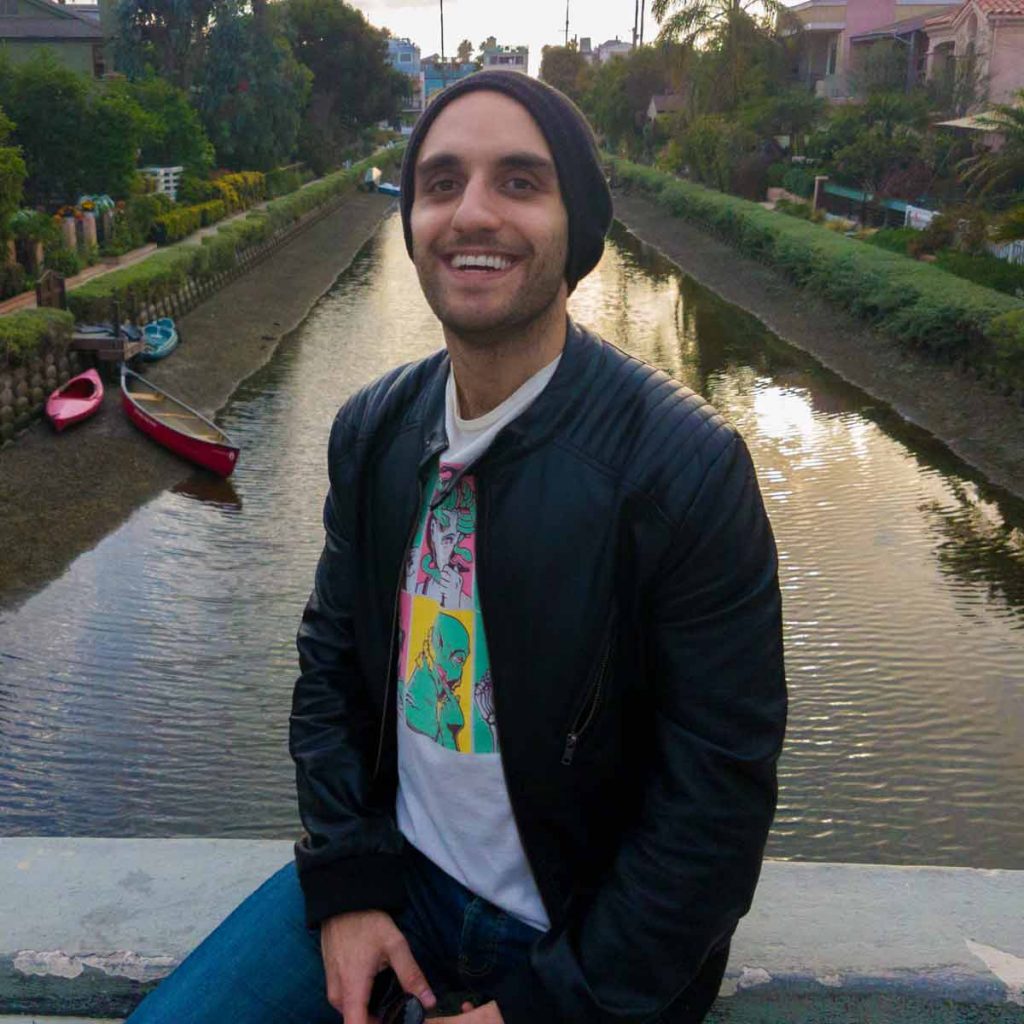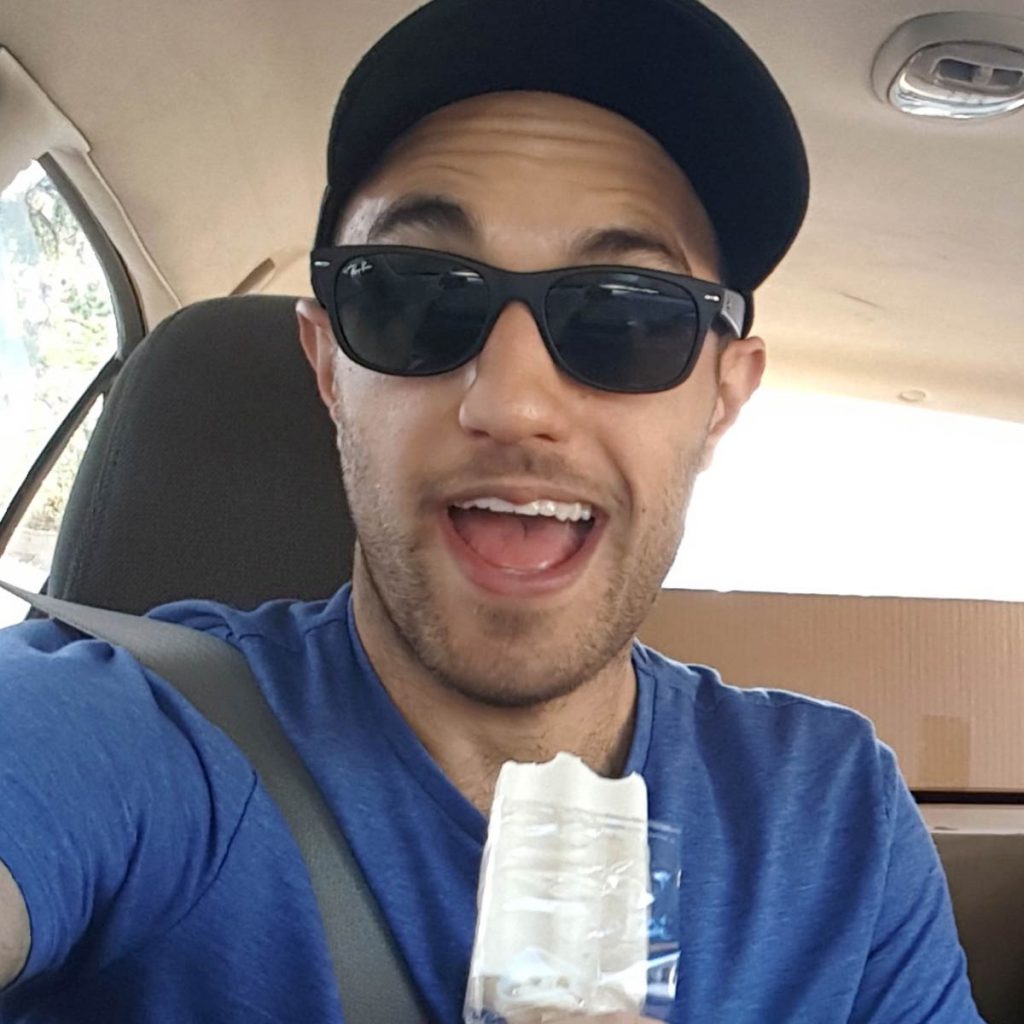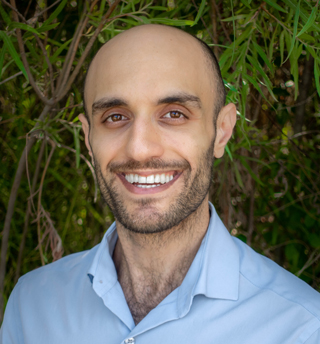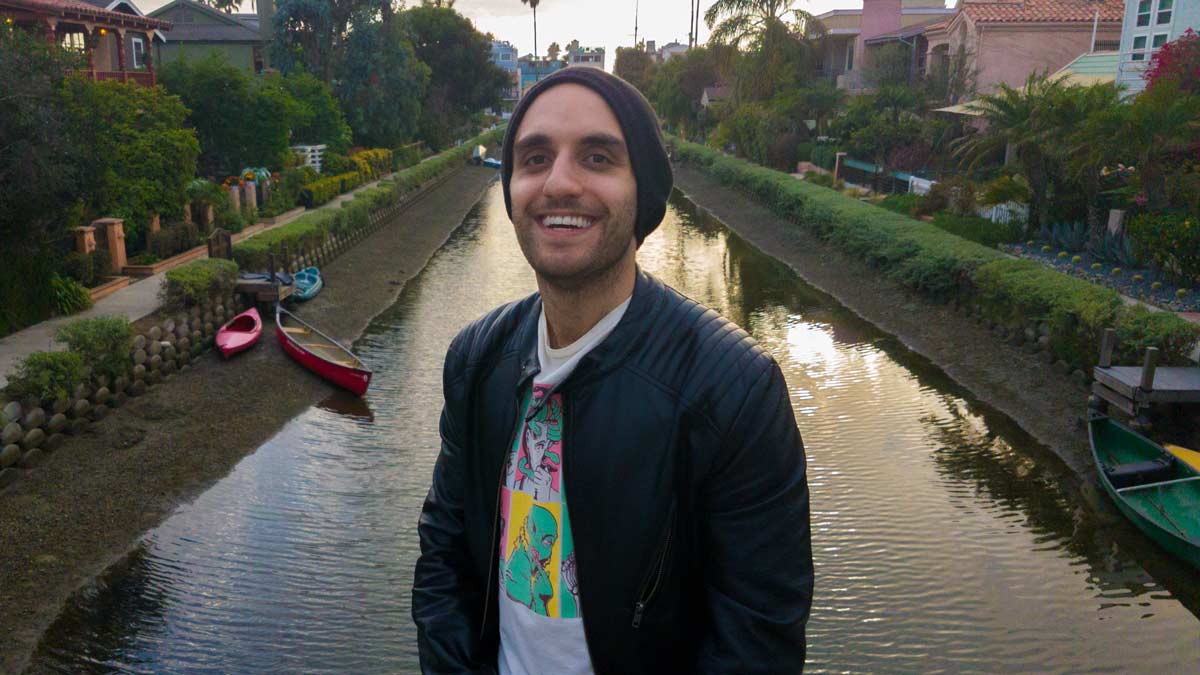Confessions of a Control Freak – Part 12: A Secondary Gain
Confessions of a Control Freak is a memoir blog series exploring the impact of Obsessive Compulsive Personality Disorder, its origins, and the rocky path to recovery. Names and identifying details have been changed to protect the privacy of all featured individuals. Subscribe to receive all future posts. More about OCPD here.
I
Two years after moving to Los Angeles, I found myself racing as ever from one contrived priority to another.
My latest ambition was to break into TV screenwriting, and to this end, I had started taking classes at UCLA.
My tendency to try to squeeze every drop of productivity out of my day usually meant I labored away at my laptop right up until the very last minute.
As getting to class already involved crossing the city, this usually meant a mad dash through peak hour traffic.
One night, however, I found myself stuck in near gridlock conditions.
At my departure, Google Maps had advised me I would be arriving 10 minutes early, but now the app was estimating I would be arriving 20 minutes late.
One of my greatest pet peeves was tardy people, closely followed by those who failed to follow rules. Now it looked like I was going to become both the former and latter.
My gut clutched at this realization. Just what would the others think of me, when this former paragon of timely attendance snuck into class 10 minutes after roll call?
More to the point, what would I think? Arriving even a few minutes late meant breaking one of my own cardinal rules.
To become like many of my peers, washing in often 15 minutes or more after class had started, just wouldn’t do.
But the only thing in my power to do at this point was to ensure I didn’t add insult to injury, by eating my dinner during class.
It was a habit I saw many class members indulging, in flagrant violation of the reminder on the whiteboard reminding attendees that food wasn’t permitted in the room.
So intent was I myself on upholding this rule that I had taken to eating my own meals on the way to class instead.
Stuck as I was in traffic, I figured now was as good a time as any to eat. Transferring the microwaved Pyrex container resting on the front passenger seat to my lap, I cracked the moisture-beaded lid.
With my eyes on the road and one hand on the steering wheel, I began shoveling spiral spaghetti into my mouth.
The lights changed, and I eased my foot off the brake, allowing the car to roll a hundred of feet or so to the next set of lights.
As I drew close to the next car up in our line, I eased my foot onto the brake to slow my progress.
But rather than stopping, I felt the car continue to crawl forward until my bumper love-tapped the fender of the car in front of me.
It was the slightest of contacts, but enough to send a small shock through my chair.
Cursing, I put the Pyrex container on the floor and climbed out to inspect the damage. At first glance, all I could see was a single dark streak on the other car’s bumper.
A man in nurse’s scrubs emerged from the other car, scanning the bumper before eventually pointing out a peppercorn-sized hole.
It was nothing really, but I apologized all the same and provided the fellow with my insurance details.
But by the following day, Scrubs had lawyered up and was demanding that I detail the limits of my insurance.
Figuring there was nothing to be gained by withholding this information, I complied. Then to my astonishment, my insurer informed me that the driver was claiming not only damages but injury to both himself and his passenger.
When pressed, my insurer advised that neither had any evidence to show for it, beyond a general doctor’s note claiming “soft tissue damage”—a condition I was almost certain neither of them had.

II
By this point, wouldn’t have been surprised if Scrubs had claimed injury to his elderly parents twenty miles away.
Considering I’d scarcely made contact with the other car, the whole business reeked of good ol’ fashion fraud.
Yet rather than challenging the claim, my insurance company ultimately capitulated, issuing a payout in excess of $10,000. This had the effect of causing my premiums to practically triple overnight.
Of course, this whole incident might have been avoided had I not been in a rush in the first place.
Sure, I could have left home earlier. And I could have also set aside time beforehand to eat, rather than wolfing down my meal when I was supposed to be minding the road.
Then there was the fact that just a few months earlier, a mechanic had warned me that my brake pads were overdue for a change.
Having just splashed out on the UCLA screenwriting course, however, I hadn’t had the money to spare.
III
At the root of this incident was anxiety, a wellspring that drew its waters from a bedrock of alienated emotions.
Growing up, I had often felt like there wasn’t a space in which I could express my feelings and have them validated. So over time, I had learned to swallow them.
This had left me emotionally crippled; an automaton functioning at partial capacity, subject to the inflexible routines with which I had programmed myself.
My life was governed less by my heart than by pure intellect, and as a result, it was a life void of true wisdom.
As much as I would reassure myself that my responses were rational and my plans error-proof, they lacked true insight and often landed me in just the kinds of difficult situations that I now found myself in.
Planning to leave at the last minute had been in the name of maximizing productivity. Yet it had also meant ignoring my own bodily needs and subjecting myself to undue stress.
Spending all the spare money I had on advancing my screenwriting skills had made sense strategically. It had contributed to the failure of my brake pads.
When I considered what this had cost me—hundreds in premiums, along with a month of fearful anticipation as I awaited the verdict from my insurance provider—it became apparent that maybe my calculus was askew.
Always trying to “maximize” values, bartering for the best, and fighting for the most optimal outcome, had only been possible so long as I lived under constant austerity measures.
In my imagination, these austerities were guarding me against difficulties, disappointments, and failures. And yet more often than not, they ended up being a leading cause of these experiences.
If it had not been entirely clear to me before, it was more than apparent now: unless I challenged my OCPD, I would continue to go through life with one hand tied behind my back.
IV
Letting go of my obsessive-compulsive ways however was no easy task, largely because I was still benefiting from it.
These were the marginal benefits that come with any addiction: the kind of gratification one gets from scratching a persistent itch.
And if work was my drug, I was most certainly an addict. When my access to work was threatened, I fretted. And when it was cut off, I became jittery.
Yet for all the misery it had caused me, I had kept my mouth practically glued to the drip-feed supply.
My reasons for sticking with it can be explained by a simple principle addiction scholars refer to as “secondary gains”.
During the hardest, unhappiest times of my life, my OCPD served as an invaluable crutch. But what started as a crutch had eventually morphed into an iron lung, from which escape now seemed impossible.
By pursuing a life as a hyperproductive overachiever, I had been able to lay my hold, if only briefly, upon the mantle of success and perceived superiority.
Knocking out goals, working my way through priority lists, and being thrifty—these things not only felt good, but they also kept the deeper fears at bay.
But so long as I was sprinting, I could not savor. So long as I was warring for control, I was unable to find peace of mind.
When in the grips of OCPD the world was rendered exclusively through black and white; a chiaroscuro through which I marched with both my ears stopped and my eyes closed.

V
Part of what had delayed any exploratory work around the OCPD effort was the threat it posed to the illusion of invulnerability.
Namely, the belief that my logic was faultless, and that I could therefore never be wrong.
It was an illusion others struggled to pierce, but one in which I contradictorily failed me when I needed it most.
After working on a project for months, if not years, the pendulum would begin to swing from head-held-high to flatlining pride.
My physical and mental health depleted, I would find myself overtaken by illness, spells of suicidal ideation, and bingeing behaviors.
When my therapist had first suggested a diagnosis of OCPD, I hadn’t been ready to hear her.
But a full year later, after the crash, I found my attitude changed. No longer was I willing to live alternatively as a pointed finger and clenched fist.
Confessions of a Control Freak continues with Part 13: “A maker of good habits”.

Essy Knopf is a therapist who likes to explore what it means to be neurodivergent and queer. Subscribe to get all new posts sent directly to your inbox.
© 2024 Ehsan "Essy" Knopf. Any views or opinions represented in this blog are personal and belong solely to the blog owner and do not represent those of people, institutions or organizations that the owner may or may not be associated with in professional or personal capacity, unless explicitly stated. All content found on the EssyKnopf.com website and affiliated social media accounts were created for informational purposes only and should not be treated as a substitute for the advice of qualified medical or mental health professionals. Always follow the advice of your designated provider.


